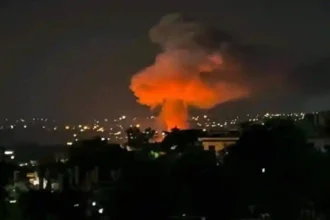In the past 48 hours, Pakistan’s top leadership, including Prime Minister Shehbaz Sharif, Army Chief General Asim Munir, former Foreign Minister Bilawal Bhutto-Zardari, and Defence Minister Khawaja Asif, have issued a series of stern warnings to India regarding the Indus Waters Treaty (IWT). On August 12, 2025, Sharif, speaking at an International Youth Day event in Islamabad, declared that Pakistan would not allow India to “snatch even one drop” of its water, vowing a “decisive response” if India violated the IWT. This marked the fourth such threat from Pakistan’s leadership, following similar statements from Munir, Bhutto-Zardari, and Asif, who collectively warned that any attempt to block Pakistan’s water supply would be treated as an act of war. The escalation stems from India’s decision to suspend the IWT on April 23, 2025, in response to the Pahalgam terror attack in Jammu and Kashmir, which killed 26 people and was attributed to Pakistan-backed groups. Pakistan’s Foreign Office, while urging India to resume the treaty’s normal functioning, has emphasized its commitment to the 1960 agreement, which governs the sharing of the Indus River basin’s waters.
The suspension of the IWT has significantly deteriorated India-Pakistan relations, already strained by decades of conflict over Kashmir and cross-border terrorism. India’s punitive measures, including the launch of Operation Sindoor on May 7, 2025, targeting terror infrastructure in Pakistan and Pakistan-occupied Kashmir, led to four days of intense cross-border drone and missile exchanges before a ceasefire on May 10. Pakistan’s leadership has framed India’s actions as “weaponization of water,” with Sharif, speaking at a glacier preservation conference in Dushanbe on May 30, 2025, calling India’s suspension “illegal” and a threat to millions of lives. Adding to the complexity, General Asim Munir’s provocative statement in Tampa, Florida, that Pakistan would “destroy any dam” India builds to block water flow, and his further claim that Pakistan could “take half the world” with it if its existence is threatened, has strained India-U.S. relations. India condemned these remarks as “nuclear sabre-rattling” on U.S. soil, questioning Pakistan’s nuclear command responsibility and accusing its government of colluding with terrorist groups.
India’s response to these threats has been robust, with New Delhi rejecting Pakistan’s calls for dialogue and asserting that the IWT will remain in abeyance until Pakistan verifiably ceases support for cross-border terrorism. Indian officials have labeled Pakistan’s threats as “irresponsible” and vowed not to succumb to “nuclear blackmail,” emphasizing their commitment to safeguarding national interests. The Indian government has also highlighted the strategic limitations of immediately altering water flows, with experts noting that diverting or storing significant volumes of Indus waters would require 5-10 years of infrastructure development. Meanwhile, Pakistan has announced plans to enhance its water storage capacity to counter India’s actions, signaling a long-term strategy to mitigate potential water shortages. As tensions simmer, the international community, particularly the U.S., faces increasing pressure to mediate and prevent a potential conflict between the two nuclear-armed neighbors, with the IWT’s suspension threatening to become a flashpoint for broader regional instability.















